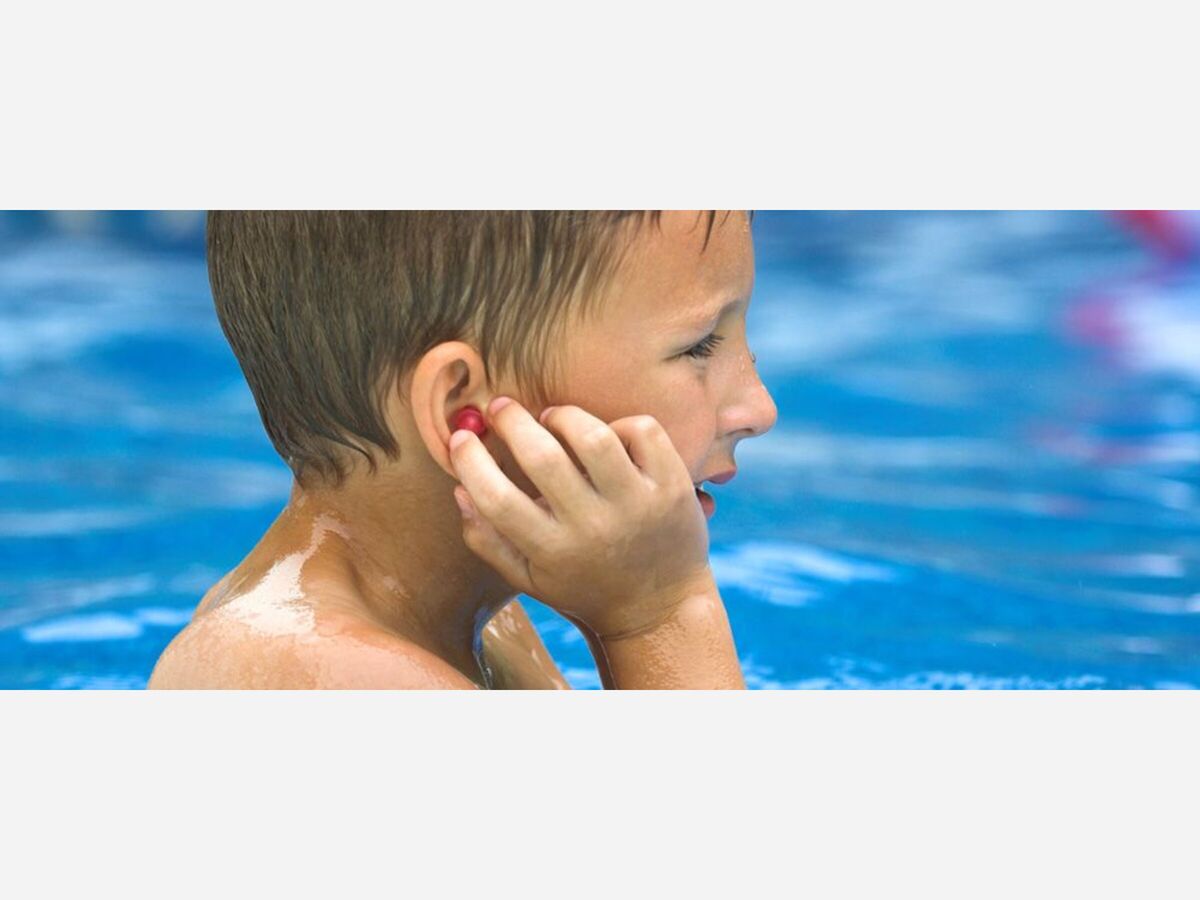Image

by UT Southwestern Medical Center

Credit: UT Southwestern Medical Center
Hongzhao Ji, M.D., Assistant Professor of Otolaryngology
Summertime trips to lakes or pools to escape the heat can sometimes lead to ear infections caused by excess moisture in the ear canal. Hongzhao Ji, M.D., Assistant Professor of Otolaryngology – Head and Neck Surgery at UT Southwestern, offers information on swimmer’s ear, how to treat it, and how to prevent it.
What causes swimmer’s ear?
Swimmer’s ear is an infection of the external ear canal, the soft tissue external to the eardrum. The causes likely vary; however, in the case of swimmer's ear specifically, this is usually caused by unwanted moisture in the ear canal that tends to upset the pH and microbe balance in the area. In some cases, accumulated earwax can cause the retention of moisture in the ear. The ear generally likes to be slightly acidic while pool water tends to be almost neutral pH.
Who is at risk and what are the symptoms?
Getting water into the external ear canal puts anyone at risk. This becomes more problematic when the water is not chlorinated, as the bacteria in water from a lake or river is much more significant. Adults are typically at lower risk than children due to their wider ear canals.
What treatment is available?
Treatment usually consists of an antimicrobial (antibiotic and/or antifungal) applied directly to the ear canal as well as manually cleaning out the ear canal to remove any accumulated debris such as pus, earwax, dead skin cells, or oils. Treatment is more successful when both debridement (cleanout under a microscope in a physician’s clinic) and antimicrobials are applied.
Can ears be damaged by swimmer’s ear?
Yes – however, the damage is usually mild and temporary. Most people with swimmer's ear recover completely with adequate treatment. There are potentially some long-term effects that can result in loss of hearing and chronic infections.
How can it be prevented?
The best prevention is to avoid getting water in your ears. Some people use ear drops after swimming, usually a combination of alcohol and vinegar meant to sterilize the ear canal and restore its desired pH. If you have done a lot of swimming in the past and never had swimmer's ear, you probably don't need the drops.
Getting the water out of your ear in a nontraumatic fashion is also helpful. Avoid using cotton swabs since they tend to push earwax deeper into the ear and may scratch the ear canal skin. Some drops/irrigation-based products can be purchased over the counter.
Is it infectious between multiple children with close contact?
This is typically not infectious, and children can still be in contact with each other. They should avoid immediate contact with any of the fluid or debris that comes out of the ears.
Is the risk higher in lakes and rivers or swimming pools?
The risk is generally higher in lakes and rivers. In lakes, swimmers risk contracting other potentially more dangerous infectious diseases such as meningitis, hepatitis, and a rare infection known as brain-eating amoeba.
Do heat waves affect water quality and raise the risk of infections?
Changes in behavior such as swimming more often can increase the incidence of swimmer's ear in a population. Water quality is variable from a well-maintained chlorinated pool to a poorly maintained one.
When is it time to see a physician?
See a doctor if you're experiencing worsening ear pain. This is more urgent if you have worsened hearing and/or a clogged sensation in your ear, or if you see any sort of foul-smelling fluid or debris coming out of your ear.
About UT Southwestern Medical Center
UT Southwestern, one of the nation’s premier academic medical centers, integrates pioneering biomedical research with exceptional clinical care and education. The institution’s faculty has received six Nobel Prizes, and includes 26 members of the National Academy of Sciences, 17 members of the National Academy of Medicine, and 14 Howard Hughes Medical Institute Investigators. The full-time faculty of more than 2,900 is responsible for groundbreaking medical advances and is committed to translating science-driven research quickly to new clinical treatments. UT Southwestern physicians provide care in more than 80 specialties to more than 100,000 hospitalized patients, more than 360,000 emergency room cases, and oversee nearly 4 million outpatient visits a year.